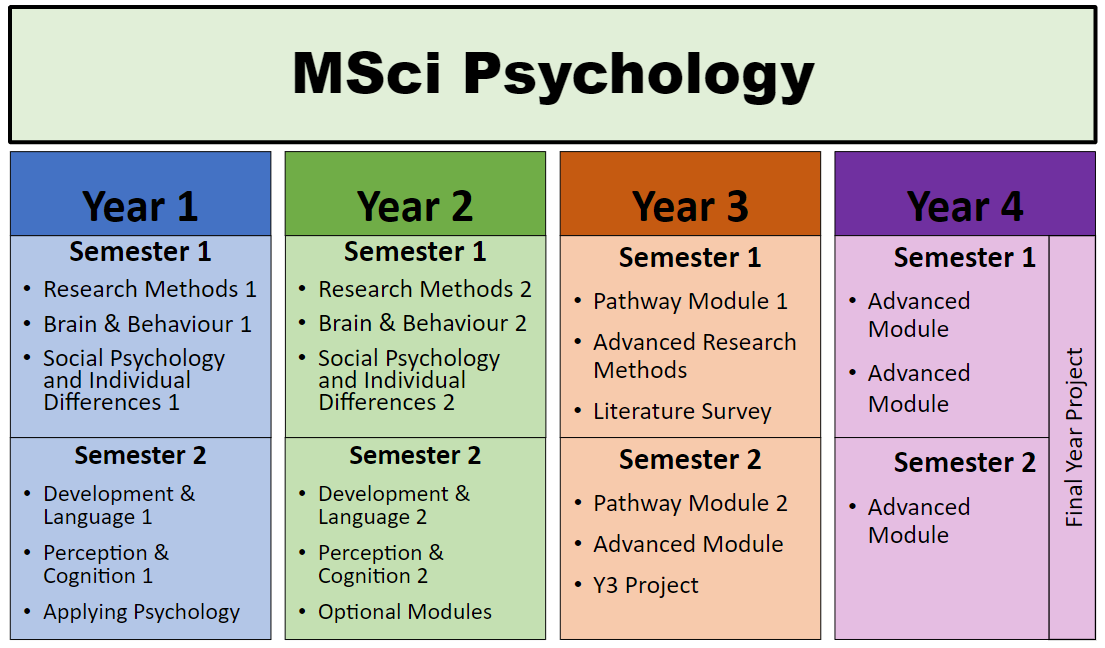UG Handbook - MSci Course Structure and progression
This section of the handbook focuses on the rules that determine your progression through the course and how your final mark is calculated. These rules are standardised across different degrees in the university, and we describe them in outline below.
The overall structure of the MSci programme. Please visit the accompanying course overview guide for a full overview of the course structure and content.
Stages
An undergraduate programme of study is divided into a specified number of stages. Each stage is equivalent to a year of full-time study. You must satisfy the requirements for one stage of your programme before being able to progress to the next stage. In the MSci, our stages correspond to Years 1, 2, 3 and 4 as illustrated above. The progression requirements are the following:
- In order to enter Year 3 of the MSci programme (or to progress from Year 2 to Year 3 of the MSci programme), you must receive an average of at least 55 on Year 2 assessments. If you do not achieve this average, you will continue on the 3 year BSc (Hons) in Psychology course. This is a BPS accredited BSc in Psychology course.
- In order to progress from Year 3 to Year 4 of the MSci you must receive an overall average of at least 55 on Year 3 assessments. If you do not achieve this average, you will leave the programme with a 3 year BSc (Hons) in Psychological Studies degree. This is not a BPS accredited course, as it does not include an empirical project.
When we calculate your degree classification, different stages are weighted differently. More information on this can be found under ‘Your final degree classification’ in the Assessment, Progression and Award section.
Year 1: 0%
Year 2: 25%
Year 3: 37.5%
Year 4: 37.5%
The first 'stage' of your programme (which is your first year) doesn't count towards your degree classification, but you do have to pass it to continue with your programme, and it will appear on your transcript. The idea is that you will not be penalised for problems you encounter when you are first getting to grips with the subject, with University life and independent study. As you become more familiar with the discipline, and work more efficiently and independently your marks will have a greater impact on your final results.
Modules
Each stage is made up of modules which you will take. You study and are assessed on three modules per semester and each module you take is worth 20 credits. You will achieve the credit for a module by passing the module assessments. Modules are assessed by a range of methods which will result in a numerical module mark out of 100.
If you fail a module there are two possible ways in which you might be able to still pass your year and progress to the next level. These are compensation and reassessment and are explained in more detail in the Assessment, Progression and Award section.
Credit-weighting
Credit-weighting means that, in calculating your average stage mark, each module mark will be given more or less weight according to the volume of credit (i.e. workload) that is associated with it.
For further information on credit-weighting, including how you can use it to calculate your marks, consult the Student Guide to Progression and Award.
Further information on calculating your final degree mark is available under ‘Your final degree classification’ in the Assessment, Progression and Award section.
To contact the Student Documentation maintainers please email psychology-student-docs-group@york.ac.uk (use your University of York email address).
